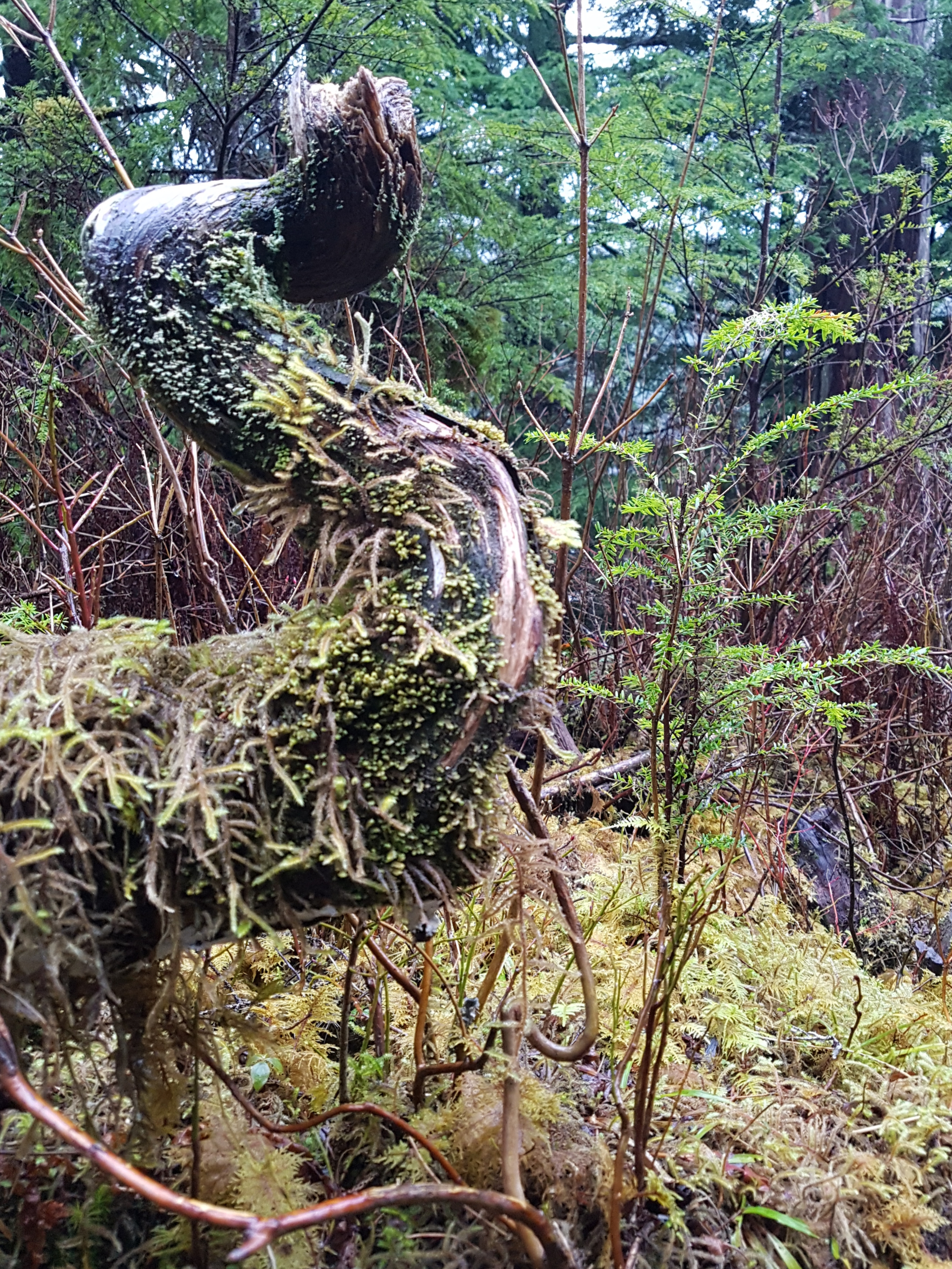The last several weeks have been preternaturally warm, considering. It’s been in the mid to high 40’s (F) the last week or so. Plenty of rain, but that temperature range could be summer here.
This tree was trying to hide behind the broken, decaying body of its deceased elder.

![]() [daily log: walking, 2km]
[daily log: walking, 2km]
Day: December 31, 2019
Caveat: hay montes
Penas (Verso XXXIV) ¡Penas! ¿Quién osa decir Que tengo yo penas? Luego, Después del rayo, y del fuego, Tendré tiempo de sufrir. Yo sé de un pesar profundo Entre las penas sin nombres: ¡La esclavitud de los hombres Es la gran pena del mundo! Hay montes, y hay que subir Los montes altos; ¡después Veremos, alma, quién es Quien te me ha puesto al morir! - Jose Marti (poeta cubano, 1853-1895)
This poem was recently brought to my attention because my friend Bob asked if I could provide some insight and translation for the poem, for a choral production he’s working on that includes this text set to music. It seems not that different from other things I’ve blogged, and given how sparse my blog has been intellectually, of late, I thought I might as well post what I gave him here.
It’s important to separate who Martí actually was from the mythical being he’s been made into by subsequent generations of Cubans of all political stripes. He was a classical liberal, and in an aesthetic school called “modernismo” -not exactly the same as “modernism” because of different circumstances. He spent a lot of time in the US during various exiles from Cuba, and was heavily influenced by US poets such as Walt Whitman. He was no communist, but he was aware of Marx and I believe may have interacted some with socialists and communists and anarchists in Europe – you take your allies where you can find them. He did believe in universal human rights as that doctrine emerged from the wake of the abolition movements of the 19th century.
I do believe this poem is political. He was fighting for Cuban independence from Spain, inspired by the liberal fantasies (ideals) exemplified to whatever degree of accuracy by the US, Mexico, Guatemala – all countries where he spent time. So what he’s saying is that the time for self-pity is over. Stop complaining and get up and fight for your freedom, fellow Cubans = fellow humans everywhere. That’s how I interpret it. There are mountains we should be climbing, now, battles to be fought. We’ll let God sort out later who was good and who was bad.
Versos was published in 1891, and Martí died while leading Cuban freedom fighters in Cuba in 1895. His political program was quite mature at that point, and it would be hard to read the poem any more innocently.
Here is my own word-for-word translation.
Problems! Who dares to say That I have problems? Later, after the lightning-bolt, and the fire, I'll have time to suffer. I know about a deep regret among the problems without names: The enslavement of men is the great regret of the world! There are mountains, and there's need to climb the high mountains; later we shall see, soul, who [it] is that has set you, for me, to die.
The key word, of course, is penas. I prefer the translation “problems” – it feels contemporarily idiomatic. Penas has a very wide semantic field: “pains” “sufferings” “sorrows” “guilt” “sins” “problems” etc. Especially in the context.
We deploy the word “problems” in modern English similarly. Cf rapper Jay-Z, “I got 99 problems ….”
I almost chose to translate it as “complaints” – to emphasize the fact that the tone of the poem (to me) is a bit of “Get off your butts, people, and DO something!”
Other vocabulary worth comment: pesar. Also fairly wide. I prefer “weight” to “regret” but that doesn’t work with the intensifier “deep”. Perhaps “heavy weight” rather than “deep regret.”
As a syntactician, I love the double (in)direct objects in the last line (“… te me …”) – what Spanish grammar is famous for, in stumping linguists and being a fairly famous example of something characteristically difficult about the language.
![]()
Caveat: Poem #1248 “Consider it conveyed”
There exists a certain man. He's alone. He's got his phone. So he can convey his lack of a plan.
